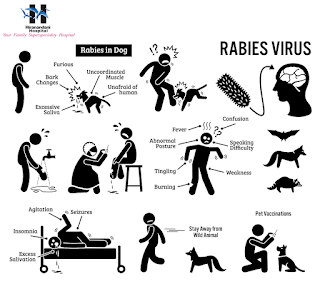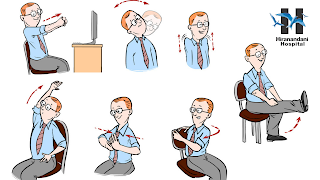Dr. L.H Hiranandani Hospital Powai - How does Polycystic Kidney Disease affect the kidneys?
Diabetes and hypertension are the most common causes of renal disease in both men and women in India. Maintaining excellent kidney health necessitates early detection and treatment of these disorders. Be proactive about your kidney health by living a healthy lifestyle and seeing your doctor on a regular basis.
In the past few years, polycystic kidney disease (PKD) is affecting people of various ages, races, and nationalities are affected by PKD. Women and males are both affected by the condition. PKD is one of the most frequent inherited conditions. It affects one in every 400 to 1000 people in the entire world. It is also seen among children and one in every 20,000 children is affected by PKD.
What exactly is Polycystic kidney disease?
Polycystic kidney disease (PKD) is a genetic disorder. In this disease, your kidneys develop multiple fluid-filled cysts. PKD cysts can also affect the shape of your kidneys. Cysts make them larger and can also that might form later in life.
PKD is also considered as a chronic kidney disease (CKD). This causes kidney function to deteriorate. This can also lead to renal failure. Other than this there are few more consequences or difficulties associated with PKD. This includes high blood pressure, liver cysts, and blood vessel abnormalities in the brain and heart.
What causes PKD?
PKD is caused by a build-up of cysts in the kidneys. People with PKD are genetically predisposed to it. PKD is almost typically passed down from one or both parents. PKD can affect people of various sex, age, race, ethnicity, as well as nation.
According to Hiranandani Hospital Powai News, you are more likely to develop PKD or carry the gene that causes it if you have a blood family who has it. A carrier is someone who carries the gene that causes PKD but does not have the disease.
What organs do PKD affect except the kidney?
PKD can affect organs other than the kidney. Cysts in the liver, pancreas, spleen, ovaries, and large bowel are common in people with PKD. Cysts in these organs don't normally cause difficulties, but they can in certain people.
When you should visit a doctor
According to Dr. Sujit Chatterjee CEO of Hiranandani Hospital, it's not uncommon for people to go years without realizing they have polycystic kidney disease. Consult your doctor if you develop some of the signs and symptoms of polycystic kidney disease. If you have a first-degree relative with polycystic kidney disease, you should immediately talk to your doctor or take them for further tests.
What are the signs and symptoms of PKD?
The signs and symptoms are not seen generally in the people of 30 or 40 years of age. Here are some signs and symptoms that cause PKD which you must notice:
Pain in the back or side
An increase in the abdomen's size
Urine with blood
Infections of the bladder or kidneys on a regular basis
Blood pressure that is too high
People suffering with high blood pressure are more likely to have PKD. Due to this they can also have severe headaches. Excessive blood pressure can lead to kidney damage. High blood pressure medication can really help slow or even prevent renal failure.
PKD treatment at Hiranandani Hospital
If you ever develop kidney failure, you should seek treatment in Powai at Hiranandani Hospital kidney transplant or dialysis. The kidney team at Hiranandani Hospital performs cutting-edge procedures and by a team of highly expert nurses who provide compassionate post-transplant care.




Comments
Post a Comment